

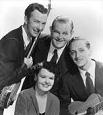
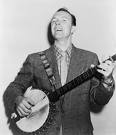
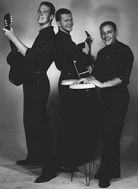
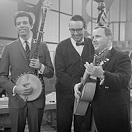

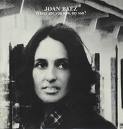










TLW's Folk Musicscope™ (Folk Music Historyscope) |
By T.L. Winslow (TLW), the Historyscoper™ |
© Copyright by T.L. Winslow. All Rights Reserved. |
Original Pub. Date: Mar. 5, 2016. Last Update: Apr. 20, 2024. |
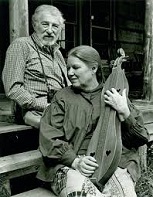
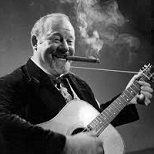
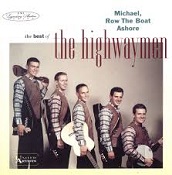

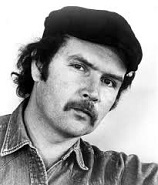




Westerners are not only known as history ignoramuses, but double dumbass history ignoramuses when it comes to folk music history. Since I'm the one-and-only Historyscoper (tm), let me quickly bring you up to speed before you dive into my Master Historyscope.
Folk music refers to old songs with unknown composers that was orally transmitted until modern times. In the modern era contemporary folk music made use of mass consumer technology to invent new songs, often protest songs with a socially conscious don't-say-Marxist message, esp. in the Am. folk music revival. At the same time the retro folk (roots) revival is more global, merging into world music. In this historyscope we'll concentrate on folk music in the #1 consumer market, the U.S. The definition of American folk music is: "All the music that fits between the cracks." (Mike Seeger)

On Jan. 31, 1843 the Virginia Minstrels (Serenaders) of blackface musicians incl. Mount Vernon, Ohio-born Daniel Decatur "Dan" Emmett (1815-1904), New York City-born Billy Whitlock (1813-78), New York City-born Richard Ward "Dick" Pelham (Pell) (1815-76), and Baltimore, Md.-born Francis Marion "Frank" Brower (1823-74) debuts at the Chatham Theatre in New York City, pioneering the minstrel show, with songs incl. Jimmy Crack Corn (Blue Tail Fly) and Old Dan Tucker. On Apr. 4, 1859 Emmett and Bryant's Minstrels debut (I Wish I Was in) Dixie (Land) at Mechanics' Hall in New York City; Dixie was a kind-hearted N.Y. slaveholder in the late 1700s?; it becomes a giant hit in the South, adopted as their anthem despite Emmett being a Yankee, claiming the title comes from the French word "Dix" (ten) inscribed on the back of $10 bills issued before the war by the Citizens' Bank of La.; later Confederate Gen. Albert Pike changes the lyrics to: "Southrons, hear your country call you/ Up, lest worse than death befall you/ To arms, to arms, to arms, in Dixie(land)"/ "Advance the flag of Dixie", after which T.M. Cooley counters with a pro-Union set of lyrics, and Emmett to write the Union Army's fife and drum manual; Pres. Lincoln comments after the U.S. Civil War ends in 1865: "I have always thought that 'Dixie' was one of the best tunes I ever heard. I had heard our adversaries had attempted to appropriate it. I insisted yesterday that we had fairly captured it"; Dixie goes on to become a synonym for the Am. South; "I wish I was in de land ob cotton,/ Old times dar am not forgotten;/ Look away, look away, look away, Dixie land!"
In 1867 after visiting the freedmen in Port Royal, S.C. during the U.S. Civil War, Yankee abolitionists Charles Pickard Ware (1840-1921), William Francis Allen (1830-89), and Lucky McKim Garrison (1842-77) pub. Slave Songs of the United States, the first pub. collection of Negro spirituals, and first pub. collection of African-Am. music of any kind; it incl. Michael, Row the Boat Ashore.
In 1890 the First Folk Revival begins, an academic effort to transcribe and record British folk songs; in 1898 the Folk Song Society is founded in London to collect and pub. British folk songs; in 1911 the English Folk Dance Society is founded; in 1932 they merge to form the English Folk Dance and Song Society.
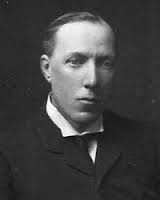


In 1916 English-born British ballad authority Cecil James Sharp (1859-1924) arrives in Appalachia to record mountain (old-time) folk songs, identifying 1.6K versions of 500 songs from 281 singers, esp. Madison County, N.C.-born "Singing" Mary Bullman Sands (1872-1949), almost all derived from English-Scottish child ballads, going on to pub. English Folk Songs from the Southern Appalachians (1917) (2nd ed. 1932) with West Medford, Mass.-born folklorist Olive Arnold Dame Campbell (1882-1954), who already pub. Songs and Ballads of the Southern Mountains in 1915. Subject of the 2000 film Songcatcher.


On Aug. 1, 1927 Am. country-folk music group The Carter Family of SW Va., incl. Alvin Pleasant Delaney "A.P." Carter (1891-1960), his wife Sara Dougherty Carter (1898-1979), and his sister-in-law "Mother" Maybelle Carter (nee Addington) (1909-78) (mother of June Carter) begin their Bristol Sessions for RCA Victor in Bristol, Va., which on Nov. 4 releases their first 78 rpm record Wandering Boy / Poor Orphan Child; by 1931 they sell 300K records with hits incl. Wayworn Traveller, Wildwood Flower, Little Moses, Engine 143, Little Darling, Pal of Mine, and Gospel Ship; after A.P. and Sara divorce in 1936, they disband in 1943, and Maybelle continues performing with her daughters Helen Myrl Carter (1927-98), Valerie June Carter (1929-2003), and Ina Anita Carter (1933-99) as the Carter Sisters, reclaiming the Carter Family name in the 1960s; their music goes on to be adopted by folk singers incl. Joan Baez and Bob Dylan.
In the 1930s the Second Folk Revival (first in 1890) begins in Britain, leading to the Am. folk music revival in the 1950s, going global in the 1960s and 1970s.

In July 1934 after being incarcerated for stabbing a white man, Mooringsport, La.-born "King of the Twelve-String Guitar" Leadbelly (Lead Belly) (Huddie William Ledbetter) (1888-1949) records hundreds of songs for foklorists John and Alan Lomax, who get La. Gov. Oscar K. Allen to get him released on Aug. 1, pioneering Am. folk music, with hits incl. "Goodnight Irene", "The Titanic", "In New Orleans (House of the Rising Sun)", "C.C. Rider", "Black Betty", "Rock Island Line", and "Blue Tail Fly".
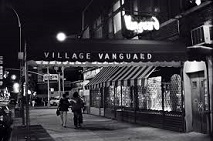
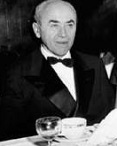
On Feb. 22, 1935 the Village Vanguard (originally the Golden Triangle) nightclub in Greenwich Village, N.Y. at Charles St. and Greenwich Ave. opens, owned by Belarus-born Max Gordon (1903-89), becoming a venue for folk music and beat poetry, getting into jazz bigtime and switching to all jazz in 1957, hosting a who's who of jazz greats from the 1940s-1980s and helping launch the careers of Thelonius Monk, Barbara Streisand, Pearl Bailey, Woody Allen, Dick Gregory, Lenny Bruce, Irwin Corey, Woody Guthrie, Lead Belly et al.


In May 1940 Jasper County, Ill.-born itinerant banjo-playing folk singer (former Boy Scout) Burl Icle Ivanhoe Ives (1909-95) makes his NBC-Radio debut as The Wayfaring Stranger, which is preempted by the news of the fall of France to the Nazis. In Sept. 1940 he begins performing on CBS-Radio, popularizing folk songs incl. Wayfaring Stranger, Foggy Dew (which got him jailed in Mona, Utah for obscenity in the 1930s), and Big Rock Candy Mountain, singing with the Almanac Singers incl. Pete Seeger, Woody Guthrie, and Will Geer. In Aug. 1941 Okeh Records releases Burl Ives: The Wayfaring Stranger, containing 12 folk songs; in 1944 Asch releases an updated version. In 1942 he is drafted into the U.S. Army, rising to corporal before being discharged for medical reasons in Sept. 1943. In 1948 he releases his first hit single Blue Tail Fly (#24 in the U.S.) with the Andrews Sisters and Vic Schoen's Orchestra (Abraham Lincoln's favorite). He follows with Lavender Blue (Dilly Dilly) (w/Capt. Stubby and the Buccaneers) (1949) (from the 1949 film So Dear to My Heart) (#13 country) (#16 in the U.S.), Riders in the Sky (A Cowboy Legend) (1949) (#21 in the U.S.), On Top of Old Smoky (w/Percy Faith and His Orchestra) (1951) (#10 in the U.S.), The Wild Side of Life (w/Grady Martin and the Slewfoot Five) (1952) (#6 country) (#30 in the U.S.). In 1952 he cooperates with the House Committee on Un-American Activities (HUAC) to end his blacklisting. In the 1960s he gets more into country, starting with A Little Bitty Tear (w/the Anita Kerr Singers and Owen Brady's Orchestra) (1961) (#2 country) (#9 in the U.S.), Funny Way of Laughin' (by Hank Cochran) (w/Owen Bradley's Orchestra) (1962) (#9 country) (#10 in the U.S.), Call Me Mr. In-Between (w/Owen Bradley's Orchestra) (1962) (#3 country) (#19 in the U.S.), Mary Ann Regrets (w/Owen Bradley's Orchestra) (1962) (#12 country) (#39 in the U.S.), Evil Off My Mind (1966) (#47 country), and Lonesome 7-7203 (by Justin Tubb) (1967) (#72 country).

In 1940 Okemah, Okla.-born folk singer-songwriter ("the Dust Bowl Troubadour") Woodrow Wilson "Woody" Guthrie (1912-67) (his guitar carries the legend "This machine kills fascists") releases his debut album Dust Bowl Ballads, the first concept album?; it incl. Dust Bowl Blues, Dust Bowl Refugee, Dust Can't Kill Me, Pretty Boy Floyd, and Tom Joad. In 1941 The Almanac Singers (Pete Seeger, Woody Guthrie, Millard Lampell, Lee Hays, part of the Popular Front of the Communist Party of the USA) release the album Songs for John Doe, which incl. The Strange Death of John Doe, against U.S. entry into WWII; like typical Am. Commies, after Pearl Harbor they release Round and Round Hitler's Grave, supporting U.S. entry. In 1945 he releases This Land Is Your Land, his counter-version of Irving Berlin's "God Bless America", which becomes a counter-culture anthem.
On Dec. 31, 1945 People's Songs, an org. to "create, promote, and distribute songs of labor and the American people" is founded by Pete Seeger, Alan Lomax, Lee Hays et al., going on to pub. a quarterly bulletin in 1946-50 which serves as the model for future folk mags. incl. "Sing Out!" and "Broadside".
In summer 1947 the Shaker Village Work Group in New Lebanon, N.Y. opens as a summer camp for teenies, teaching Shaker crafts and culture, helping influence the Am. folk music revival of the 1950s-1960s and the 1960s counterculture movement, launching the hit songs "Michael Row the Boat Ashore" (1954) and "Kumbaya" (1957); it closes after the 1972 season.
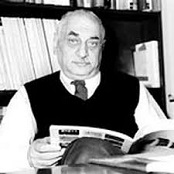
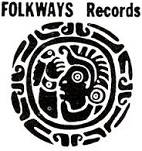
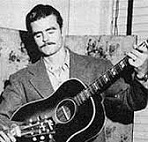
In 1948 Folkways Records is founded in New York City by Warsaw, Poland-born Moses "Moe" Asch (1905-86) and Marian Distler, going on to record and release 2,168 albums documenting folk and roots music from around the world, helping launch the careers of Lead Belly, Pete Seeger, Cisco Houston, Woody Guthrie et al.; Woody Guthrie's Wilmington, Del.-born Merchant Marine friend Gilbert Vandine "Cisco" Houston (1918-61) later releases the album The Folkways Years, 1944-1961, which incl. Born 100,000 Years Ago.
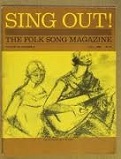
In May 1950 Sing Out!, a quarterly journal for folk musicians begins pub., becoming an industry leader.

In 1950 Elektra Records is founded by nobodies Jac Holzman and Paul Rickolt for a joint investment of $600, going on to concentrate on folk music and protest singers, not selling very much until they decide to go into psychedelic rock in 1966, signing the Doors, Love, the Stooges, and MC5 - how elektrifying?
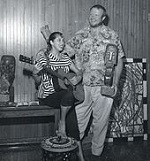
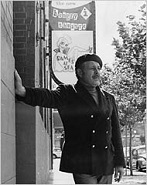
In 1950 the Hungry I (hungry i) nightclub at 599 Jackson St. on the ground floor of the Internat. Hotel in North Beach, San Francisco, Calif., founds by 6'7" Krefeld, Germany-born hipster Eric "Big Daddy" Nord (Harry Helmuth Pastor)(1919-89) opens, soon being purchased by impresario Harry Charles "Enrico" Banducci (1922-2007), moving to 546 Broadway, becoming famous for its brick wall stage, becoming the launching pad for acts incl. Bill Cosby, Ronnie Schell, The Kingston Trio, Glenn Yarborough, Prof. Irwin Corey, Godfrey Cambridge, Mort Sahl, We Five, the Mamas and the Papas, Laura Nyro, and Barbra Streisand.


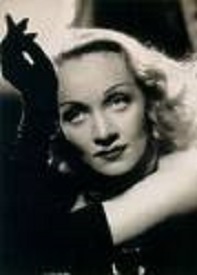
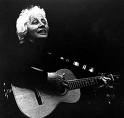
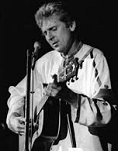
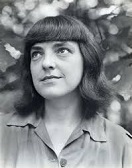
Speaking of Communism, in 1950 the Greenwich Village folk music quartet The Weavers, incl. Peter "Pete" Seeger (1919-2014), Ruth Alice "Ronnie" Gilbert (1926-2015), Lee Hays (1914-81), and Fred Hellerman (1927-) (who later produces Arlo Guthrie's album "Alice Restaurant") have a #1 U.S. hit with Goodnight, Irene by Leadbelly. Seeger's banjo carries the legend "This Machine Surrounds Hate and Forces It to Surrender". Too bad in 1950 the right-wing journal Counterattack pub. Red Channels: The Report of Communist Influence in Radio and Television, listing 151 intellectuals, entertainers and journalists incl. Leonard Bernstein, Lee J. Cobb, Aaron Copland, Jose Ferrer, John Garfield, Ruth Gordon, Ben Grauer, Dashiell Hammett, E.Y. Harburg, Lillian Hellman, Judy Holliday, Lena Horne, Langston Hughes, Burl Ives, Sam Jaffe, Gypsy Rose Lee, Burgess Meredith, Zero Mostel, Dorothy Parker, Edward G. Robinson, Pete Seeger, William L. Shirer, Louis Untermeyer, and Orson Welles, creating a de facto industry blacklist, using the for-profit corp. AWARE Inc. as a clearance service to check for Commie sympathies, and forcing The Weavers to disband in 1951 after releasing Wimoweh/ The Lion Sleeps Tonight, a cover of the 1939 song "Mbube" by Zulu musician Solomon Linda (1909-62) and the Evening Birds; too bad, they don't pay him proper royalties, causing him to lose millions until his family begins suing in 2004. On Aug. 18, 1955 Seeger refuses to take the Fifth Amendment in front of the House Un-Am. Activities Committtee (HUAC), and stood on the First Amendment, saying "I am not going to answer any questions as to my association, my philosophical or religious beliefs or my political beliefs, or how I voted in any election, or any of these private affairs. I think these are very improper questions for any American to be asked, especially under such compulsion as this." On July 26, 1957 the U.S. House of Reps votes 373-9 to cite Seeger, Arthur Miller, and five others with contempt of Congress for failing to cooperate with HUAC. In 1955 the experience causes Seeger to begin writing Where Have All the Flowers Gone? after reading Mikhail Sholokhov's 1928 novel "And Quiet Flows the Don", with verses added in May 1960 by Joe Hickerson, who is given 20% of the royalties; in 1961 the Kingston Trio releases their big hit Where Have All the Flowers Gone?, thinking it's an anon. folk song; in 1962 Marlene Dietrich (1901-92) releases Where Have All the Flowers Gone?, a cover of the 1961 Kingston Trio hit, which becomes a big hit in Germany in English and German as "Sag Mir, Wo die Blumen Sind"; she goes on perform it in Israel, breaking the taboo of using German publicly there; Seeger finally releases his own version in 1964. In Mar. 1961 they finally convict him and sentence him to 10 years, but he gets his conviction overtured in May 1962, going on to write or co-write (with Lee Hays) hit songs "If I Had a Hammer", and "Turn, Turn, Turn!" Meanwhile in 1960 he is barred by the school board of San Diego, Calif. from performing at a high school unless he signs an oath that he won't promote a Communist agenda or attempt to overthrow the govt., and after he refuses, the ACLU obtains an injunction forcing the concert to be held; they finally apologize in Feb. 2009 after he finally officially quits the CPUSA, with the soundbyte: "I should have asked to see the gulags when I was in the U.S.S.R. [in 1965]", and writes Big Joe Blues condemning Stalin, also uttering the soundbyte: "I certainly should apologize for saying that Stalin was a hard driver rather than a very cruel leader." Meanwhile he utters the soundbytes "Some may find [my songs] merely diverting melodies. Others may find them incitements to Red revolution. And who will say if either or both is wrong? Not I", and "I like to say I'm more conservative than Goldwater. He just wanted to turn the clock back to when there was no income tax. I want to turn the clock back to when people lived in small villages and took care of each other", and "I still call myself a Communist, because Communism is no more what Russia made of it than Christianity is what the churches make of it." When will we ever learn, when will we ever learn? Go figure, in 1962 German film star Marlene Dietrich (1901-92) records Seger's song Where Have All the Flowers Gone?, which becomes a big hit in Germany in English and German as "Sag Mir, Wo die Blumen Sind"; she goes on to perform it in Israel, breaking the taboo of using German publicly there - quit stealing my style, bitch? In 1960 after teaming up with blues musicians Memphis Slim and Willie Dixon, Seeger releases the album Pete Seeger at the Village Gate with Memphis Slim and Willie Dixon (Folkways Records), which incl. Jacob's Ladder, I'm On My Way to Canaan's Land, and Hieland Laddie. In 1962 he releases the album Memphis Slim and Willie Dixon at the Village Gate with Pete Seeger (Folkways Records), incl. Stewball, and Blue Yodel #1 (T for Texas) (by Jimmie Rogers). In 1963 Seeger et al. organize a concert at Carnegie Hall in New York City featuring the Freedom Singers to benefit the Highlander Folk School in New Market, Tenn., dir. by folk singer Guy Hughes Carawan Jr. (1927-2015), bringing the anthem We Shall Overcome, written in 1947 by white Spadra, Ark.-born Highlander student Zilphia Horton (Zilphia Mae Johnson) (1910-56) to public attention. In 1963 he also releases the hit single Little Boxes, written by Malvina Reynolds (1900-78). On Mar. 8, 1965 the U.S. Supreme Court in U.S. v. Seeger (named for Daniel Andrew Seeger, not singer Peter Seeger, although it should be?) unanimously expands the definition of conscientious objector to people who are not members of any religious denomination, such as agnostics and atheists, the test being a "sincere and meaningful belief which occupies in the life of its possessor a place parallel to that filled by the God of those who had been granted the exemption from the military draft." In 1966 Seeger founds Hudson River Sloop Clearwater to fight pollution in the Hudson River, and in 1969 launches the sloop Clearwater, with crew incl. singer Don McLean; the Hudson River Shad catch fell to 50 tons in 1966, most of it tainted, causing the Dept. of Interior Bureau of Commercial Fisheries to stop keeping records of it; meanwhile the U.S. becomes the last major nation to abandon the 3-mi. limit for fishing, extending it to 12 mi.; in 1976 they upped it to 200 mi. Also in 1966 Seeger releases the album Dangerous Songs!?, which features the track Beans in My Ears (by Len Chandler), containing the lyric "Mrs. Jay's son Alby has beans in his ears", which the anti-war crowd took to mean LBJ. In 1967 Seeger and Hector Angulo (1932-) releases the single Guantanamera, with lyrics taken from an 1895 poem by Cuban revolutionary Jose Marti (1853-95). In 1967 Seeger releases the single Waist Deep in the Big Muddy, with the lyrics: "Every time I read the paper, those old feelings come on/ We are waist deep in the Big Muddy/ and the big fool says to push on." Too bad, the song is cut from the Sept. 1967 "Smothers Brothers Comedy Hour", then reinstated in Jan. 1968, probably helping the network decide to cancel the show.

In 1952 after marrying LA-born photographer George Pickow (1922-2010) in 1950, and winning a Fulbright scholarship to collect folk songs, Viper, Ky.-born folk singer-songwriter Jean Ritchie (1922-2015) releases her first album Traditional Songs of Her Kentucky Mountain Home, going on to revive Appalachian dulcimer playing and become known as "the Mother of Folk", composing songs incl. "My Dear Companion", "Black Waters", "Tender Ladies", and "Pretty Saro".
In 1952 The Purple Onion cellar club at 140 Columbus Ave. (between Jackson and Pacific Sts.) North Beach, San Francisco, Calif. opens, becoming a home to the Beat movement and helping launch the careers of folk acts incl. The Kingston Trio and the Smothers Brothers, comedians Woody Allen, Lenny Bruce, Phyllis Diller, Bob Newhart, and Richard Pryor, and poet Maya Angelou.

In 1952 Folkways Records releases the 6-album compilation Anthology of American Folk Music of 84 recordings originally issued in 1927-32, compiled by filmmaker Harry Everett Smith (1923-91), helping spur the Am. folk music revival of the 1950s-1960s; too bad, Smith is also a leader in the psychedelic New Age Beat movement in New York City, giving Am. folk music smelly underwear?

In 1954 Birmingham, Ala.-born African-Am. singer Odetta Holmes (1930-2008), releases her debut album The Tin Angel (Odetta and Larry) (with Lawrence B. "Larry" Mohr), launching her career, going on to become known as "the Voice of the Civil Rights Movement", and "the Queen of American Folk Music" (Martin Luther King Jr.).
In 1954 Sylvia Wright coins the word "mondegreen" in a Harper's Mag. article for the process of hearing song lyrics wrong, citing the folk ballad "The Bonny Earl of Murray": "They hae slain the Earl of Murray/ And laid him on the green" (And Lady Mondegreen).

In 1956 Harlem, N.Y.-born Harold George "Harry" Belafonte (Bellanfanti Jr.) (1927-) releases his breakthrough album #3 Calypso (#1 in the U.S.), which becomes the first LP to sell over 1M copies, causing him to become known as "the King of Calypso"; it incl. Mama Look a Boo-Boo (against juvenile delinquency), and The Banana Boat Song (Jamaican folk song with new lyrics by Lord Burgess and William Attaway) (#5 in the U.S.); another vers. of The Banana Boat Song (which incl. the chorus from "Hill and Gully Rider") by The Tarriers (incl. Erik Darling and Alan Arkin) (released first) reaches #4, and another vers. of The Banana Boat Song by the Fontane Sisters reaches #13.
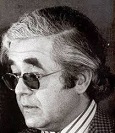
In 1956 the Gate of Horn folk music club in the basement of the Rice Hotel at 755 N. Dearborn St. in Chicago, Ill., owned by folk-rock group mgr. Alfred Bernard Grossman (1926-86) opens, helping launch the careers of Bob Gibson, Roger McGuinn, Odetta et al.; Grossman goes on to represent Bob Dylan, Peter, Paul and Mary, Janis Joplin, The Band, and Gordon Lightfoot, charging 25% instead of the usual 15%.
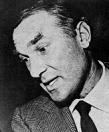
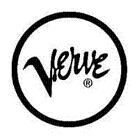
In 1956 Verve Records is founded by Norman Granz (1918-2001) as a merger of Clef Records (founded 1946) and Norgram Records (founded 1953) to distribute jazz records; MGM purchases it in 1961 for $3M, and creates Verve Folkways for folk music in 1964, and later signs some rock acts incl. The Righteous Brothers, Frank Zappa and The Mothers of Invention, The Velvet Underground, and The Blues Project.
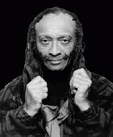
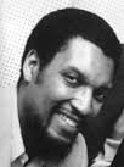
In 1956 New York City-born jazz pianist Cecil Percival Taylor (1929-), whose percussion-like style is described as "eighty-eight tuned drums", and "Art Tatum with contemporary-classical leanings" releases his debut album Jazz Advance on the new short-lived label Transition Records in Cambridge, Mass., founded in 1955 for $900 by Harvard U. grad Thomas Burchard "Tom" Wilson Jr. (1931-78), featuring Bemsha Swing (by Denzil Best and Thelonious Monk), and Azure (by Duke Ellington and Irving Mills), receiving scathing criticism that later turns into praise, pioneering free jazz; too bad, after releasing only a dozen albums by Taylor, Sun Ra, Doug Watkins, Donald Byrd, and Herb Pomeroy, Transition Records go bankrupt in 1957 and sells out to Blue Note Records and Delmark Records, after which Wilson joins Columbia Records, becoming one of the "midwives of folk-rock", producing albums by Bob Dylan, Simon & Garfunkel, The Mothers of Invention, The Animals, Velvet Underrground, The Blue Project et al.
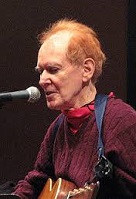
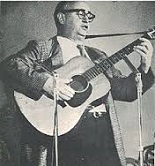
On Dec. 1, 1957 the Old Town School of Folk Music in Chicago, Ill. is founded by folk musicians Frank Hamilton (1934-) and Winfred J. "Uncle Win" Stracke (1908-91), going on to launch the careers of Bob Gibson, Steve Goodman, Fred Holstein, Bonnie Koloc, Roger McGuinn, John Prine et al.

In 1957 San Francisco, Calif.-born folk singer-songwriter Malvina Reynolds (1900-78) composes the song Morningtown Ride, which becomes a #2 U.K. hit for The Seekers in Dec. 1966. In 1962 she composes the song Little Boxes, which is recorded by Pete Seeger in 1963. In 1962 she composes the song What Have They Done to the Rain, about nuclear fallout, which becomes a #29 U.S. hit and #13 U.K. hit for The Searchers in 1965.
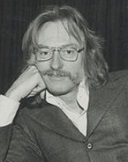
In 1957 The Troubadour nightclub at 9081 Santa Monica Blvd. in West Hollywood, Calif. near Beverly Hills, owned by 6'6" Alexander Douglas "Doug" Weston (1926-99) opens, becoming a major venue for folk music acts, and later for rock acts, hosting comedian Lenny Bruce (who is arrested in 1962 for obscenity for using the word "schmuck"), Joni Mitchell, The New Christy Minstrels, The Everly Brothers, Hoyt Axton, Leonard Cohen, Ramblin' Jack Elliot, Arlo Guthrie, Buffalo Springfield, Linda Ronstadt, James Taylor, Carole King, the Eagles, Jackson Browne, Van Morrison et al.; on Aug. 25, 1970 Neil Diamond introduces Elton John in his first U.S. show; in 1974 pals John Lennon and Harry Nilsson are ejected for drunkenly heckling the Smothers Brothers; launches the careers of Randy Newman, Steve Martin, Cheech & Chong, Guns N' Roses et al.; in the late 1970s it switches to heavy metal and glam bands incl. Motley Crue, Poison, and Warrant, later helping launch the careers of Radiohead, Coldplay, Franz Ferdinand, Arctic Monkeys, Papa Roach et al.


On June 2, 1958 the folk group The Kingston Trio, from Palo Alto, Calif., incl. Donald David "Dave" Guard (1934-91), Robert Castle "Bob" Shane (Shoen) (1934-), and Nicholas Wells "Nick" Reynolds (1933-2008), who is later replaced by John Coburn Stewart (1939-2008) release their debut album The Kingston Trio (#1 in the U.S.), which helps make LPs popular; incl. Tom Dooley (#1 in the U.S.) (3M copies); based on Confed. soldier Thomas C. "Tom" Dula (1845-68), who was hanged in Statesville, N.C. for murdering Laura Foster. They go on to release 19 top-100 albums incl. 14 top-10s and 5 #1s, becoming "the undisputed kings of the folk-singing rage by every yardstick." (Herbert Kamm)
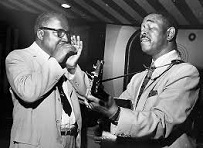
In 1958 after forming a jump blues duo in 1940, blind-black harmonica player Sonny Terry (Saunders Terrell) (1911-86) and black guitar player Walter Brown "Brownie" McGhee (1915-96) record Folk Songs of Sonny Terry and Brownie McGhee for Folkways Records, which incl. Cornbread, Peas and Black Molasses, Southern Train, and Sitting on Top of the World, going on to last 45 years before splitting up.
In 1958 Club Passim (originally Club 45) in Harvard Square, Cambridge, Mass. is founded by Joyce Kalina and Paula Kelley as a jazz-blues club, soon hosting folk music acts incl. Joan Baez, Bob Dylan, and Joni Mitchell, helping launch the career of Lovin' Spoonful.
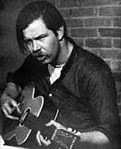
In 1958 the (Village) Gaslight Cafe in Greenwich Village, Manhattan, N.Y. opens, becoming a leading venue for folk music acts; meanwhile folk-blues musician David Kenneth Ritz "Dave" Van Ronk (1936-2002) becomes a celeb in Greenwich Village, N.Y., becoming known as "the Mayor of MacDougal Street", becoming friends with Bob Dylan, Tom Paxton, Phil Ochs, Ramblin' Jack Elliott, and Joni Mitchell; his songs incl. Hang Me, Oh Hang Me, Green Green Rocky Road, and Cocaine; in the late 1960s former Highwaymen member Gilbert Lee "Gil" Robbins (1931-2011), father of actor Tim Robbins becomes owner of the Gaslight Cafe, which closes in 1971.

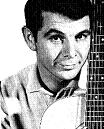
On July 11-12, 1959 the first Newport Folk Festival in R.I. is held, featuring new performer Joan Chandos Baez (1941-) introduced by folk singer Samuel Robert "Bob" Gibson (1931-96); at the 1963 festival Joan Baez introduces Bob Dylan.

In July 1959 the folk music group The Limeliters, is formed in New York City, incl. Lou Gottlieb (1923-96) (bass violin) (doctorate in musicology), Alex Hassilev (1932-) (banjo), and Glenn Yarbrough (1930-) (guitar), named after a nightclub in Aspen, Colo., going on to release hits incl. There's a Meeting' Here Tonight, Gotta Travel Down, The City of New Orleans, A Dollar Down (1961) (#60 in the U.S.), Have Some Madeira M'Dear, Whiskey in the Jar et al. In 1961 they release the album Tonight: In Person (#5 in the U.S.). Too bad, Yarborough leaves in 1963 to go solo, and in 1965 Milwaukee, Wisc.-born former lead singer for The Limeliters (1959-63) Glenn Robertson Yarbrough (1930-) releases his 1-hit wonder Baby, the Rain Must Fall (#12 in the U.S.), from the film of the same name.
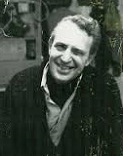
In 1959 Cafe Wha? opens in Greenwich Village, N.Y. at 115 MacDougal St. between Bleecker and West 3rd St., owned by Manuel Lee "Manny" Roth (1919-2014), uncle of David Lee Roth, helping launch the careers of folk singers Bob Dylan, Peter, Paul and Mary, rocker Jimi Hendrix, and comedians Woody Allen, Lenny Bruce, Bill Cosby, Richard Pryor, and Joan Rivers; it closes in the late 1960s.
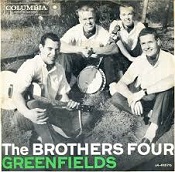
In Jan. 1960 the Seattle, Wash.-based folk music singing group The Brothers Four from the U. of Wash., incl. Bob Flick, John Paine, Mike Kirkland, and Dick Foley release their debut single Greenfields (#2 in the U.S.) (#40 in the U.K.) (1M copies), followed by The Green Leaves of Summer (#65 in the U.S.) (from the film "The Alamo"), after which they slide down the charts.
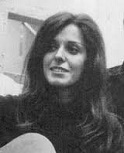
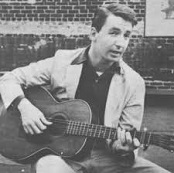
On June 1, 1960 (Wed.) Gerde's (Gerdes) Folk City in Greenwich Village, N.Y. begins holding weekly hootenannies, featuring folk singers Carolyn Hester (1937-), Logan Eberhardt English (1928-83), Charlie Rothschild (who later becomes Judy Collins' mgr.) et al., becoming one of the top three music venues on Earth along with The Cavern and CBGB, helping launch the careers of Bob Dylan et al.

In Oct. 1960 Staten Island, N.Y.-born folk singer-songwriter (Quaker) Joan Chandos Baez (1941-) (daughter of a Scottish mother and Mexican-Am. physicist father Albert Vinicio Baez) releases her debut album Joan Baez, which incl. "Silver Dagger", "House of the Rising Sun", "Donna Donna", and "Fare Thee Well (10,000 Miles)". In Sept. 1961 she releases album #2 Joan Baez, Vol. 2, which incl. "Pal of Mine", "The Trees They Do Grow High", "Lily of the West", and "Lonesome Road". In Sept. 1962 she releases the live album Joan Baez in Concert, Part 1 (#10 in the U.S.), which incl. Kumbaya, and Babe, I'm Gonna Leave You (which makes fans of Jimmy Page and Robert Plant). In Nov. 1963 she releases the live album Joan Baez in Concert, Part 2 (#7 in the U.S.), which incl. her first cover of Bob Dylan songs, Don't Think Twice It's Alright and With God on Our Side; it also incl. We Shall Overcome, recorded in May at Miles College in Birmingham, Ala. during a civil rights protest. In Oct. 1964 she releases album #3 (#5 incl. live albums) Joan Baez (1941-), Joan Baez 5 (#12 in the U.S.); it incl. There But for Fortune (by Phil Ochs) (#10 in the U.S.) (#10 in the U.K.), It Ain't Me Babe (by Bob Dylan), and I Still Miss Someone (by Johnny Cash). In Oct. 1965 she releases album #4 Farewell, Angelina (#10 in the U.S.); it incl. Farewell, Angelina, and It's All Over Now, Baby Blue (by Bob Dylan). In June 1968 she releases album #5 Baptism: A Journey Through Our Time, containing spoken-sung poetry. In Dec. 1968 she releases double album #6 Any Day Now (#30 in the U.S.), containing 15 covers of Bob Dylan songs, recorded in Sept. in Nashville, Tenn.; it incl. incl. Love Minus Zero, No Limit, North Country Blues, You Ain't Going Nowhere, and Tears of Rage. In May 1969 she releases album #7 David's Album (#36 in the U.S.), recorded for hubby (1968-73) David Victor Harris (1946-), who is set to be jailed for resisting the draft, although they split a few mo. after his release. In Jan. 1970 she releases album #8 Joan Baez (1941-), One Day at a Time, which incl. Sweet Sir Galahad (first song she ever composed) (about her brother-in-law Richard Farina, late hubby of sister Mimi Farina), and Joe Hill (by Alfed Hayes and Earl Robinson). In July 1971 she releases double album #9 Blessed Are..., her last with Vanguard before signing with A&M; it incl. Blessed Are, and The Night They Drove Old Dixie Down (#3 in the U.S.) (first released in 1969 by The Band).
In 1960 Caffe Lena (Caffè Lena) in Saratoga Springs, N.Y. opens, becoming the first folk music coffee house in the U.S.

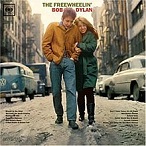

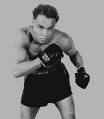
On Jan. 24, 1961 Duluth, Minn.-born folk singer Bob Dylan (Robert Allen Zimmerman) (1941-) first comes to New York City, visiting his idol Woody Guthrie then settling down in Greenwich Village to join the protest folk music scene, sometimes going by the name Elston Gunn, forming a tight circle of artists and writers at the Gaslight Cafe on MacDougal St. incl. Victor Maymudes (1935-2001) (bodyguard/mgr.), Philip David "Phil" Ochs (1940-76), Eric Andersen (1941-), David Kenneth Ritz "Dave" Van Ronk (1936-2002), Thomas Richard "Tom" Paxton (1937-), Robert "Bob" Neuwirth (1939-), and David Blue (Stuart David Cohen) (1941-82). On Mar. 19, 1962 he releases his debut album Bob Dylan (Columbia); the cover features him wearing a Huck Finn cap and a coat borrowed from James Dean; he tells people he's part Sioux and has travelled with carnivals when he's really a middle-class Jewish kid from Hibbing, Minn.?; incl. Talkin' New York, and Song to Woody. On Mar. 21, 1963 Am. featherweight boxer ("the Springfield Rifle") David S. "Davey" Moore (b. 1933) is killed in Dodger Stadium in a nationally televised match by Cuban boxer Ultiminio "Sugar" Ramos (1941-), after which Bob Dylan writes the 1964 song Who Killed Davey Moore?. On May 27, 1963 he releases album #2 The Freewheelin' Bob Dylan (#22 in the U.S.) (#1 in the U.K.), which incl. Blowin' in the Wind, and Don't Think Twice, It's Alright ("You just kinda wasted my... precious time"); the cover shows him with his babe (1961-4) Suzsan Elizabeth "Ruze" Rotolo (1943-2011). On Jan. 13, 1964 he releases album #3 The Times They Are a-Changin', with cover photo by Barry Feinstein (1931-2011); it incl. The Times They Are A-Changin'. On Aug. 8, 1964 he releases album #4 Another Side of Bob Dylan; he "somehow lost touch with people" and got caught in "the paraphernalia of fame" (Irwin Silber)?; it incl. All I Really Want to Do, and Motorpsycho Nitemare. On Aug. 28, 1964 Bob Dylan and the Beatles meet for the first time in New York City, and he introduces them to the joys of marijuana, with Paul being particularly thrilled, uttering the soundbyte "I'm thinking for the first time, really thinking" - did mother Mary come to him speaking words of wisdom? On May 5, 1965 Am. folk singer Bob Dylan and Scottish folk singer Donovan (billed as "the British Dylan") meet at the Savoy Hotel in London, during which Donovan's mgrs. won't let journalists be present to stage a "stunt on the lines of the disciple meeting the Messiah", after which Donovan switches to producer Mickie Most, who makes him a superstar. On July 24-25, 1965 (Sat.-Sun.) the 1965 Newport Folk Festival sees folk music finally reach commercial status, becoming Folk Judgment Day when Bob Dylan (1941-) betrays his fans by going electric, causing shouts of "Get rid of that electric guitar", after which the festival (founded 1959) closes; Phil Ochs (who was invited to the 1963 festival but not this one) praises Dylan's courage in defying the folk music authorities; Dick Farina (Fariña) (1937-66) and Mimi Baez Farina (1945-2001) (sister of Joan Baez) sing while the audience is drenched in the rain and loving it, setting the stage for the bohemian hippie lifestyle of the 60s?
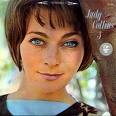
In 1961 Seattle, Wash.-born folk singer-songwriter Judith Marjorie "Judith" "Blue Eyes" Collins (1939-) from Denver, Colo. releases her debut album A Maid of Constant Sorrow, featuring folk sings performed in a social protest style, incl. Maid of Constant Sorrow, Wild Mountain Thyme, and Tim Evans (Go Down You Murderers) (by Ewan McColl). In July 1962 she releases album #2 Golden Apples of the Sun. In Mar. 1964 she releases album #3 Judy Collins #3 (#126 in the U.S.), arranged by Roger McGuinn, later of The Byrds; incl. Farewell (by Bob Dylan), The Bells of Rhymney (by Idis Davies and Pete Seeger), Turn! Turn! Turn! (To Everything There Is a Season) (by Pete Seeger). Album #5 Judy Collins' Fifth Album (Nov. 1965) features Tomorrow Is a Long Time (by Bob Dylan), Daddy You've Been on My Mind (by Bob Dylan), Mr. Tambourine Man (by Bob Dylan), Early Morning Rain (by Gordon Lightfoot), and In the Heat of the Summer (by Phil Ochs). Album #6 In My Life (Nov. 1966) (#46 in the U.S.) adds orchestral arrangements to her folk music; it incl. In My Life (by John Lennon and Paul McCartney), and Suzanne (Leonard Cohen). Album #7 Wildflowers (Oct. 1967) (#5 in the U.S.) (500K copies); first with her own compositions, incl. Since You've Asked, Both Sides, Now, and Albatross. Album #8 Who Knows Where the Time Goes (Nov. 1968) (#29 in the U.S.) (500K copies) incl. Who Knows Where the Time Goes (by Sandy Denny), Someday Soon (by Ian Tyson), and Bird on the Wire (by Leonard Cohen). Album #9 Whales & Nightingales (Aug. 1970) (#17 in the U.S.) (500K copies) incl. Amazing Grace (by John Newton), Farewell to Tarwathie (complete with humpback whale sounds), and A Song for David (by Joan Baez). Album #11 True Stories and Other Dreams (Jan. 1973) (#27 in the U.S.) incl. Cook With Honey (by Valerie Carter), The Hostage (by Tom Paxton) (about the 1971 Attica Prison riots), and Fisherman Song (which she later performs on "Sesame Street"). Album #12 Judith (Mar. 1975) (#17 in the U.S.) (1M copies) incl. Send in the Clowns (by Stephen Sondheim), The Moon Is a Harsh Mistress (by Jimmy Webb), and Salt of the Earth (by Mick Jagger and Keith Richards).

In 1961 the "collegiate folk music" group The Highwaymen from Wesleyan U. in Middletown, Conn., incl. Dave Fisher (1940-2010), Bob Burnett (1940-2011), Steve Butts, Chan Daniels (1939-75), and Stephen S. "Steve" Trott (1939-) release their first #1 Billboard hit Michael (Row the Boat Ashore) (1M copies). In 1962 they follow with Cotton Fields (by Leadbelly) (#20 in the U.S.). Too bad, in 1964 after discovering the songs "All My Trials" and "Big Rock Candy Mountain", and releasing the first recording of a Buffy Sainte-Marie song ("Universal Soldier"), they disband so they can attend graduate schools, except Dave Fisher, who moves to Hollywood and composes 1K songs.


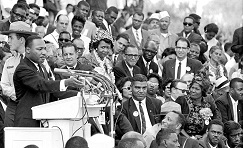

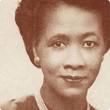
In 1961 the folk group Peter, Paul and Mary is formed in Greenwich Village, N.Y., incl. Peter Yarrow (1938-), Noel Paul Stookey (1937-) (the non-Jew of the trio), and Mary Allin Travers (1936-2009) after being put together and managed by Albert Bernard Grossman (1926-86), who later signs Bob Dylan and Janis Joplin and the Holding Co. In May 1962 they release their debut album Peter, Paul and Mary (#1 in the U.S.) (2M copies), which incl. Lemon Tree (#35 in the U.S.) (based on the 1937 Brazilian folk song "Meu Limao, Meu Limoeiro", arranged by Jose Carlos Burle, and given English lyrics by Will Holt), If I Had a Hammer (#10 in the U.S.), and Where Have All the Flowers Gone. On Jan. 15, 1963 they release album #2 Moving (#2 in the U.S.), which incl. Puff the Magic Dragon (#2 in the U.S.), and This Land is Your Land (by Woody Guthrie). On Aug. 28, 1963 the Great March on Washington for Jobs and Freedom, organized by Bayard Rustin (1912-87) sees Martin Luther King Jr. deliver his I Have a Dream Speech on the steps of the Lincoln Memorial to 200K while NBC-TV preempts daytime programming to provide live coverage; MLK Jr. calls the U.S. Constitution and Declaration of Independence "a promissory note to which every American was to fall heir"; white actors Marlon Brando, James Garner, and Burt Lancaster attend, along with black actors Sidney Poitier and Harry Belafonte; longtime civil rights leader ("Godmother of the Civil Rights Movement") Dorothy Irene Height (1912-2010) stands on the platform with King during the speech, later saying she is disappointed that he didn't mention women's rights; folk trio Peter, Paul and Mary sing If I Had a Hammer, and Mary has an "apotheosis"; good friend Sammy Davis Jr. stands in front of the podium. In Oct. 1963 they release album #3 In the Wind (#1 in the U.S.), which reaches #1 a few weeks before the JFK assassination and a few mo. before the Beatles Invasion; it incl. Big Boat, Settle Down (Goin' Down That Highway), Blowin' in the Wind (by Bob Dylan) (#2 in the U.S.) (1M copies), and Don't Think Twice, It's Alright (#9 in the U.S.). On Mar. 18, 1967 they release album #7 Album 1700, giving up always trying to be relevant and go for it?; it incl. Leaving On a Jet Plane (written by John Denver, launching his career) (#15 in the U.S.) (last hit), I Dig Rock and Roll Music, and Bob Dylan's Dream.
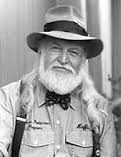
In 1961 Cleveland, Ohio-born folk singer Bruce Duncan "Utah" Phillips (1935-2008), a lifelong IWW organizer who loves to ride the trains and hold combo concerts and IWW recruitment sessions releases his first album "Nobody Knows Me", followed by "Good Though" (1973), "El Capitan" (1975), "All Used Up: A Scrapbook" (1980), "We Have Fed You All a Thousand Years" (1983), "The Old Guy" (1989), "I've Got to Know" (1992), The Past Didn't Go Anywhere (Oct. 15, 1996), and Fellow Workers (May 18, 1999).
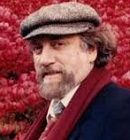
In 1961 The Bitter End nighclub in Greenwich Village, N.Y. at 147 Bleecker St., owned by Fred Weintraub (1928-) opens, hosting weekly hootenannies that help launch the careers of folk musicians and comedians incl. Lenny Bruce, Peter, Paul and Mary, Randy Newman, and The Isley Brothers; in the 1960s Weintraub moves to Hollywood and becomes a TV producer, producing "Hootenanny", "The Dukes of Hazzard" et al., then in 1970 becomes exec vice-pres. of Warner Bros., producing "Woodstock", "Enter the Dragon", and "It's Showtime".
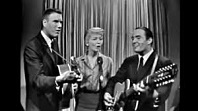
In June 1962 the progessive folk music trio The Rooftop Singers is founded by Erik Darling (1933-2008) ' (formerly of The Weavers), Bill Svanoe, and Lynne Taylor, soon releasing their debut album Walk Right In, which incl. their 1-hit wonder Walk Right In (by Gus Cannon) (#1 in the U.S.) (#10 in the U.K.) (1M copies), featuring paired 12-string acoustic guitars.
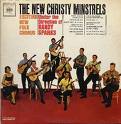
In Oct. 1962 the folk music group The New Christy Minstrels, named after the 1840s blackface minstrel group the Christy's Minstrels by 1961 Leavenworth, Kan.-born founder Lloyd A. "Randy" Sparks (1933-), with rotating members who later incl. John Denver, Kenny Rogers, Gene Clark, Barry McGuire, and Kim Carnes release their debut album Presenting the New Christy Minstrels (#19 in the U.S.), incl. This Land is Your Land (by Woody Guthrie), followed by Merry Christmas (album #2) (1963), In Person (album #3) (1963), Tell Tall Tales (album #4) (1963), and Ramblin (album #5) (1963), incl. Green, Green (by Randy Sparks and Barry McGuire). They go on to release 20+ albums and sell millions of records.
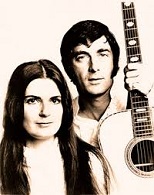
In 1962 after moving from Toronto to New York City and signing with mgr. Albert Grossman, Canadian-born folk music singers Ian Tyson (1933-) and Sylvia Tyson (nee Fricker) (1940-) release their debut album Ian & Sylvia, with Ian playing the guitar and Sylvia the autoharp, which gets them an invite to the 1963 Newport Folk Festival; they follow with album #2 Four Strong Winds (1964) (#115 in the U.S.), which incl. their signature song Four Strong Winds (which becomes a #3 country hit for Bobby Bare in 1967), and Tomorrow Is a Long Time (by Bob Dylan), album #3 Northern Journey (1964) (#70 in the U.S.), incl. You Were On My Mind, which later becomes a hit for We Five (#3 in the U.S. in 1965) and Crispian St. Peters (#36 in the U.S. in 1967), album #4 Early Morning Rain (1965) (#77 in the U.S.), which incl. (That's What You Get) For Lovin' Me (by Gordon Lightfoot), album #5 Play One More (1966) (#142 in the U.S.), which goes electric with full modern arrangements, incl. Short Grass, album #6 So Much for Dreaming (1967) (#130 in the U.S.), which incl. Wild Geese, and Child Apart, album #7 Lovin' Sound (1967) (#148 in the U.S.), which incl. Lovin' Sound, and album #9 Full Circle (1968), after which they slide off the charts despite going country rock and forming the group Great Speckled Bird in 1969, releasing album #10 Great Speckled Bird (Apr. 1970) (first album produced by Todd Rundgren), which incl. Calgary, album #11 Ian and Sylvia (1971) (#201 in the U.S.), which incl. Summer Wages, and album #12 You Were on My Mind (1972), which incl. You Were on My Mind; they part ways in 1975.
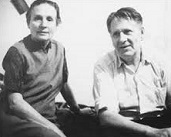
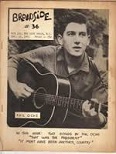
In 1962 Broadside mag. is founded by former Almanac Singers Agnes "Sis" Cunningham (1909-2004) and her hubby Gordon Friesen (1909-96) to promote the Am. folk music revival, produced on a mimeograph machine obtained from the Am. Labor Party, creating a look-feel that is copied by many zines for decades; the final issue is #187 in 1988.
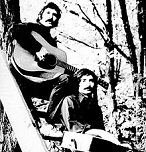
In 1962 folk musicians Blind Boy Grunt (Bob Dylan), Pete Seeger, Phil Ochs, Peter (Oliver Albee) La Farge (1931-65), and The Freedom Singers gather at the studio of Folkways Records in Greenwich Village, N.Y. to record the album Broadside Ballads, Vol. 1, which is released in 1963; it incl. Dylan's I Will Not Go Down Under the Ground (Let Me Die in My Footsteps), a duet with Bronx, N.Y.-born folk singer Harry Peter "Happy" Traum (1938-); in 1963 Happy Traum and his New World Singers record the first version of Blowin' in the Wind. In 1969 after founding Homespun Tapes and moving to Woodstock, N.Y., Happy and his brother Arthur Roy "Artie" Traum (1943-2008) found a folk duo, releasing their debut album Happy & Artie Traum, which features Going' Down (the Road) to See Bessie (by Rick Danko and Robbie Robertson), followed by Double Back (1971), and Hard Times in the Country (1975).
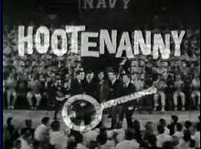
In Apr. 1963 the musical variety show Hootenanny debuts on ABC-TV for 43 episodes (until Sept. 1964), hosted by Jack Linkletter and taped at college campuses, with theme song "Hootenanny Saturday Night" by The Brothers Four, featuring folk music acts incl. The Journeymen, The Limeliters, The Carter Family, The Foggy Mountain Boys, Lester Flagg and Earl Scruggs, The Chad Mitchell Trio, The New Christy Minstrels, The Brothers Four, Ian and Sylvia, The Big 3, Judy Collins, Johnny Cash, Hoyt Axon, The Tarriers, The Smothers Brothers, Bud & Travis et al.; too bad, the producers blacklist Pete Seeger and The Weavers, causing Joan Baez, Bob Dylan, Peter, Paul and Mary et al. to begin boycotting them, after which the 1964 British Invasion causes them to lose viewers and get cancelled, being replaced with "The Outer Limits" and "Shindig!".

In summer 1963 the 1963 Newport Folk Festival features Peter, Paul and Mary, Joan Baez, Bob Dylan, Tom Paxton, and new El Paso, Tex.-born folk-protest singer Philip David "Phil" Ochs (1940-76). In 1964 he releases his debut album All the News That's Fit to Sing, which causes him to become known as the "singing journalist", which coincidentally jives with the fact that the New York Times was founds by no-relation Adolph Ochs; it incl. Power and the Glory, The Bells (words by Edgar Allan Poe). Album #2 I Ain't Marching Anymore (1965) features I Ain't Marching Anymore ("It's always the old who lead us to the war/ It's always the young who fall/ But look at all we've won with a saber and a gun/ Tell me is it worth it all?/ I ain't marching any more, no I ain't marching anymore"), Draft Dodger Rag ("Oh I'm just a typical American boy from a typical American town/ I believe in God and Senator Dodd and akeepin' old Castro down,/ And when it came my time to serve I knew, better red than dead,/ But when I got to my old draft board, buddy, this is what I said,/ Sarge, I'm only eighteen, I got a ruptured spleen,/ And I always carry a purse/ I got eyes like a bat, and my feet are flat, and my asthma's getting worse"), That Was the President (tribute to JFK) ("The bullets of the false revenge have struck us once again/ As the angry seas have struck upon the sand,/ And it seemed as though a friendless world had lost itself a friend/ That was the president and that was the man"), Talking Birmingham Jam ("You see, Alabama is a sovereign state/ With sovereign dogs and sovereign hate/ They stand for the Bible, for the Constitution/ They stand against the Communist revolution/ They say, It's pinkos like you that freed the slaves"), Links on the Chain ("Come you ranks of labor, come you union core/ And see if you remember the struggles of before,/ When you were standing helpless on the outside of the door/ And you started building links on the chain/ On the chain, you started building links on the chain"). Album #3 Phil Ochs in Concert (1966) features There But For Fortune, Bracero, Canons of Christianity, Cops of the World, Ringing of Revolution, and I'm Gonna Say It Now. Album #4 Pleasures of the Harbor (Oct. 31, 1967) features Pleasures of the Harbor (based on the 1940 John Wayne flick "The Long Voyage Home"), Outside of a Small Circle of Friends (the Kitty Genovese murder) (gets banned from radio for suggesting that smoking marijuana is more fun than drinking beer), The Party, The Crucifixion (his masterpiece?) (compares JFK to Christ, bringing RK to tears in an 1968 performance). Album #5 Tape from California (July 1968) features Tape from California, The War Is Over (if people just declare it's over, it will be?), The Harder They Fall, White Boots Marching in a Yellow Land, When In Rome (13 min. on depression). Album #6 Rehearsals for Retirement (May 16, 1969) has a cover showing Ochs' tombstone, with the words "Died: Chicago, Illinois, 1968", and features the tracks Pretty Smart On My Part (about a right-winger who plans to assassinate the U.S. pres., causing a special note to be put in his lengthy FBI file), William Butler Years Visits Lincoln Park and Escapes Unscathed (the 1968 Dem. Convention), The World Began in Eden and Ended in Los Angeles, and Doesn't Lenny Live Here Anymore. Too bad, on Mar. 27, 1970 Ochs holds a concert at Carnegie Hall in New York City, shocking fans by deciding that the Yippies and other leftist protesters are going in the wrong direction, and showing up in a gold lame Elvis Presley lookalike Nudie Cohn suit and singing covers of songs by Presley, Conway Twitty, Buddy Holly, and Merle Haggard; after a telephone bomb threat cut it short, he tells pissed-off fans he will get them into a 2nd show for free, and breaks the glass to the box office, cutting his hand, then breaks into the lockbox, getting him banned for life after the 2nd show; after telling fans that Buddy Holly songs are "just as much Phil Ochs as anything else" and getting booed, he tells them to "not be like Spiro Agnew... You can be a bigot from all sides. You can be a bigot against blacks. You can be a bigot against music." His last album (#7) Gunfight at Carnegie Hall (1975) is his famous gold-suited Mar. 27, 1970 Carnegie Hall concert. On Apr. 9, 1976 he commits suicide by hanging in Far Rockaway, N.Y. after changing his name to John Butler Train and telling people that he had murdered Ochs.
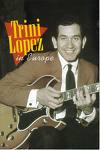
In 1963 Dallas, Tex.-born singer Trini Lopez (1937-) releases his debut album Trini Lopez Live at PJ's (#3 in the U.S., #1 in the U.K.), which sells 1M copies, and features the tracks If I Had a Hammer (#3 in the U.S., #4 in the U.K.), Kansas City (#23 in the U.S., #35 in the U.K.), and La Bamba. In 1964 he designs the Trini Lopez Standard and Trini Lopez Deluxe guitars for the Gibson Guitar Corp. In 1965 he releases Lemon Tree (#20 in the U.S.).
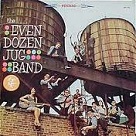
In Jan. 1964 the Even Dozen Jug Band, founds in New York City in 1963, incl. John Sebastian, David Grisman, Steve Katz, Maria Muldaur, and Joshua Rifkin releases their first and only album The Even Dozen Jug Band; it incl. Take Your Fingers Off It, Original Colossal Drag Rag, Mandolin King Rag, Evolution Mama, All Worn Out, and Sadie Green.

In Feb. 1964 after changing their name from the Newport Singers, The Serendipity Singers from the U. of Colo. in Boulder, incl. Bryan Sennett (1940-2011), Jon Arbenz (1940-2012), Bob Young (1939-2006), Brooks Hatch, Mike Brovsky, John Madden, and Lynne Weintraub release their 1-hit wonder Don't Let the Rain Come Down (Crooked Little Man) (#6 in the U.S.), followed by Beans in My Ears (1964) (#30 in the U.S.).
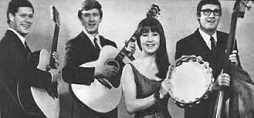
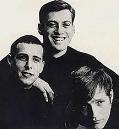
On Oct. 19, 1964 after meeting soloist Paul Simon in the U.K. , the Melbourne, Australia-based folk group The Seekers, incl. Judith Durham (tambourine, piano), Athol Guy (bass), Keith Potger (guitar and banjo), and Bruce Woodley (guitar and mandolin) release their debut album Wednesday Morning, 3 A.M., featuring Paul Simon's song The Sound of Silence; too bad, the Beatles Invasion causes slow sales, but after Simon & Garfunkel team up and get a hit with a rocked-up version made without their permission and released in Sept. 1965, it is re-released in Jan. 1966 and climbs to #30 in the U.S. and #24 in the U.K.; in Dec. 1964 they release their first hit I'll Never Find Another You (by Tom Springfield) (#4 in the U.S.), followed by What Have They Done to the Rain? (Jan. 1965) #29 in the U.S.) (#13 in the U.K.), Morningtown Ride (by Malvina Reynolds) (July 1965) (#2 in the U.K.), and Someday One Day (by Paul Simon) (1966) (#11 in the U.K.). On Apr. 4, 1966 the Easton, Penn.-based pop group The Cyrkle rleases their hit Red Rubber Ball (#2 in the U.S.), written by Paul Simon in England to get a a £100 advance from The Seeker, and co-written by Bruce Woodley; in Dec. 1966 they release Georgy Girl (by Jim Dale and Tom Springfield) (#2 in the U.S.) (#3 in the U.K.) (3.5M copies); in Mar. 1967 they perform at the Sidney Myer Music Bowl in Melbourne before 200K, becoming the greatest concert attendance in the Southern Hemisphere (until ?), helped by the annual Moomba Festival; on July 7, 1968 Farewell the Seekers is shown on BBC-TV before an audience of 10M, after which they disband.

On Nov. 4, 1964 angry Jewish-Am. comedian Lenny Bruce (1925-66), who was arrested twice in Apr. at the new (since Feb.) Cafe au Go Go in Greenwich Village, N.Y. in the basement of 152 Bleecker St. is convicted of obscenity after a 3-judge panel doesn't buy his defense of calling noted artists to testify that they are full of sh, er, it's his right; on Dec. 22 he is sentenced to 4 mo. in priz, and forever has the threat of rearrest over his head while he appeals, dying before it can be decided; club owner Howard Solomon (1929-2004) is also convicted, and gets his conviction overturned in 1968, and upheld in 1970 by the N.Y. Court of Appeals; in 2003 gov. George Pataki grants Bruce a posth. pardon, the first in N.Y. history; in Oct. 1969 Cafe au Go Go closes after hosting folk and rock acts incl. Big Joe Williams, Tim Buckley, The Paul Butterfield Blues Band, Judy Collins, Odetta, Cream, The Grateful Dead, The Stone Poneys, Jimi Hendrix, Van Morrison, The Chambers Brothers, Canned Heat, The Fugs, Country Joe and the Fish, The Yardbirds et al.
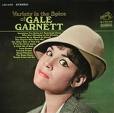
In 1964 Kiwi-born Canadian folk singer Gale Zoe (Zoë) Garnett (1942-) releases her debut album My Kind of Folk Songs, which incl. her 1-hit wonder We'll Sing in the Sunshine (#4 in the U.S.).

In 1964 Chicago, Ill.-born folk singer-songwriter Thomas Richard "Tom" Paxton (1937-) releases his major label debut album Ramblin' Boy (Elektra Records), which features Ramblin' Boy, The Last Thing on My Mind, and I Can't Help But Wonder Where I'm Bound. In 1967 he composes the hit song Bottle of Wine for The Fireballs. His songs go on to get covered by dozens of artists.

In 1964 Canadian Cree activist folk singer Beverly "Buffy" Sainte-Marie (1941-) releases her debut album It's My Way!, which features Now That the Buffalo's Gone (mistreatment of Native Ams.), Codeine, and Universal Soldier, proclaiming her as the Vietnam era's Pocahontas with a guitar; too bad, she sells it for $1 to a man at the Gaslight Cafe in Greenwich Village, N.Y., then buys it back 10 years later for $25K. In 1968 she releases the album I'm Gonna Be a Country Girl Again, which features I'm Gonna Be a Country Girl Again, and Take My Hand for Awhile. In 1970 she releases the hit single The Circle Game from the 1970 film The Strawberry Statement, dir. by Stuart Hagmann.
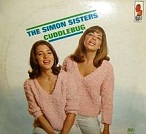
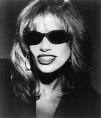
In 1964 the Bronx, N.Y.-born Simon Sisters, incl. Carly Elisabeth Simon (1945-) and Lucy Simon (1943-), daughters of Simon & Schuster co-founder Richard L. Simon (1899-1960) and Jewish African-Am.-German civil rights activist-singer Andrea Heinemann Simon (1909-94) release their debut album Meet the Simon Sisters, which incl. Winkin' Blinkin' and Nod (based on the poem by Eugene Field), followed by album #2 Cuddlebug (1964), which incl. Cuddlebug, and Turn! Turn! Turn!, and album #3 The Simon Sisters Sing the Lobster Quadrille and Other Songs for Children. In Feb. 1971 after Lucy gets married and they disband, Carly releases her debut solo album Carly Simon (#30 in the U.S.), featuring the hit track That's the Way I've Always Heard It Should Be (#10 in the U.S.). Album #2 Anticipation (Nov. 1971) (#30 in the U.S.) features Anticipation (#13 in the U.S.) (about a date with Cat Stevens), and Legend in Your Own Time (#50 in the U.S.) (about beau James Taylor). Album #3 No Secrets (Nov. 1973) (#1 in the U.S.) was her breakthrough, featuring You're So Vain (#1 in the U.S.), The Right Thing to Do (#17 in the U.S.), and When You Close Your Eyes. Album #4 Hotcakes (Jan., 1974) (#3 in the U.S.) features Mockingbird (with husband James Taylor) (#10 in the U.S.), and Haven't Got Time for the Pain (#14 in the U.S.). Her song Nobody Does It Better became the theme for the 1977 James Bond 007 flick The Spy Who Loved Me. Album #7 Boys in the Trees (Apr. 1978) (#10 in the U.S.) features You Belong to Me (#6 in the U.S.), Devoted to You (w/James Taylor) (#36 in the U.S.) (by the Everly Brothers).
In 1964 The Main Point folk music coffeehouse in Bryn Mawr, Penn. opens, known for its small intimate atmosphere, hosting folk music acts incl. Arlo Guthrie, Leonard Cohen, Tim Hardin, Richie Havens, Joni Mitchell, Phil Ochs, Odetta, and Dave Van Ronk, helping launch the career of Bruce Springsteen and becoming one of the favorite venues of Dan Fogelberg.
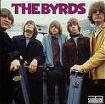
On June 21, 1965 The Byrds, from Los Angeles, Calif., incl. Roger McGuinn (1942-) (12-string Rickenbacker guitar), Gene Clark (1944-91), David Crosby (1941-), Chris Hillman (1944-), and Michael Clarke (Michael James Dick) (1946-93) (drums), pioneers along with Joni Mitchell, Jackson Browne, James Taylor, Carly Simon, Fleetwood Mac, and the Eagles of the Laurel Canyon Sound release their debut album Mr. Tambourine Man (#6 in the U.S.) (#7 in the U.K.), incl. Mr. Tambourine Man (by Bob Dylan) (#1 in the U.S. and U.K.), and I'll Feel a Whole Lot Better; album #2 Turn! Turn! Turn! (Dec. 6, 1965) (#17 in the U.S.) (#11 in the U.K.) incl. Turn! Turn! Turn! (by Pete Seeger) (#1 in the U.S., #26 in the U.K.), and He Was a Friend of Mine; album #3 Fifth Dimension (July 18, 1966) (#24 in the U.S.) (#27 in the U.K.) incl. 5D (Fifth Dimension), Eight Miles High, and Mr. Spaceman.
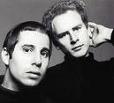
On Sept. 13, 1965 American pop rock folk duo Simon & Garfunkel, incl. Paul Frederic Simon (1941-) and Arthur Ira "Art" Garfunkel (1941-) (formed in 1957 as Tom & Jerry) release their #1 U.S. hit The Sound of Silence, which is featured in their album #2 Sounds of Silence (Jan. 17, 1966), and in the 1967 film The Graduate. It is first releases as a folksy acoustic version in their debut album Wednesday Morning, 3 A.M. (Oct. 19, 1964), which flopped after the Beatles drowned them out, but which is hopped-up by their producer without their knowledge and releases as a single, making them into reluctant stars, I is going to go through my whole life being fat before I lost the weight. The album also incl. the hits I Am a Rock, Richard Cory, and Kathy's Song. Album #3 Parsley, Sage, Rosemary and Thyme (Oct. 10, 1966) (#4 in the U.S.) includes the hit tracks Scarborough Fair/Canticle, 7 O'Clock News/Silent Night, The Dangling Conversation, A Poem on the Underground Wall, and Homeward Bound. The Graduate Soundtrack album (Jan. 21, 1968) includes their hit Mrs. Robinson, along with "The Sounds of Silence" and "Scarborough Fair". Album #4 Bookends (Apr. 3, 1968) features the hit tracks Bookends, America, A Hazy Shade of Winter, At the Zoo, and Fakin' It. Album #5 (last) Bridge Over Troubled Water (Jan. 26, 1970) (#1 in the U.S.) (#1 in the U.K.) is named after their frequent fights; sells 25M copies; album has 11 tracks because they can't agree on a final cut; having cashed in bigtime, they part ways next year; incl. Bridge Over Troubled Water (#1 in the U.S.) (#1 in the U.K.), El Condor Pasa (If I Could) (#6 in the U.S.), Cecilia (#4 in the U.S.), The Boxer, Bye Bye Love, Baby Driver (featured in the 2017 film "Baby Driver"), and Keep the Customer Satisfied. Their breakup is almost as big as the Beatles', punctuating the folk side of the 1960s.


On Nov. 25, 1965 (Thur.) (Thanksgiving) folk singer Arlo Davy Guthrie (1947-) (son of folk singer Woody Guthrie) and his friend Richard J. "Rick" Robbins (1946-) are arrested in Stockbridge, Mass. for dumping some trash on a holiday by officer William J. "Obie" Obanhein (1924-94) after a Thanksgiving feast at a restaurant run by Alice M. Brock, after which on Nov. 27 they plead guilty before blind judge James E. Hannon after seeing the "27 8-by-10 color glossy pictures with the circles and arrows and a paragraph on the back of each one explaining what each one was to be used as evidence against us", and are fined $50 and told to pick up the garbage; later turned into the hit 1967 song "Alice's Restaurant (Massacree)". In Sept. 1967 Guthrie releases his debut album Alice's Restaurant, which incl. Alice's Restaurant (Massacree), becoming the new 18 min. 34 sec. anti-Vietnam War anthem, with cool lyrics about his Stockbridge, Mass. arrest on Thanksgiving Day 1965 and the fun of draft evasion at 1 Whitehall St., New York City, where his criminal record gets him send to "Group W bench 'cause you want to know if I'm moral enough to join the army, burn women, kids, houses and villages after bein' a litterbug?"; the conclusion is that when facing the draft one should tell the military pshrink "Shrink, you can get anything you want at Alice's Restaurant" and walk out; the Thanksgiving dinner is actually held at her home in Great Barrington, Mass. (6 mi. N of Stockbridge), a former church, which later becomes the Guthrie Center; the real restaurant is at the E end of Main St. in Stockbridge, W Mass. near the Housatonic River S of I-90 (40 mi. SE of Albany, N.Y.); Norman Rockwell lived there for the last quarter of his life and his studio was also on Main St.; the Dump is 1 mi. W of town on Glendale Middle Rd. (closed in 1965); the foot of the 15-ft. cliff where he dumped the garbage later becomes the site of a house; the town of Lee 6 mi. E up Rt. 7 is where the blind judge fines Guthrie $50 in a red brick courthouse; Trinity Church (by the railroad tracks), where Alice and Ray (and Fasha the dog) live in the bell tower and serve their holiday meal and stash their garbage is in Van Deusenville 4 mi. SW of the Dump; the song is the same length as the 18.5 min. Watergate tape gap? On Nov. 7, 1967 after getting pissed-off at Arlo Guthrie's hit song "Alice's Restaurant", U.S. Selective Service dir. (1941-70) Lewis Blaine Hershey (1893-1977) announces that college students arrested in anti-Vietnam War demonstrations will no longer be eligible since they're convicted criminals, er, will lose their draft deferments and become eligible immediately, issuing the Hershey Directive to 4,088 U.S. draft boards, ordering them to reclassify all protesters against military recruiters as 1-A, causing a flood of draft evaders to Canada (10K total), where they receive help from the Students Union for Peace Action in Toronto (where they can get anything they want?); on Jan. 2, 1970 the U.S. Supreme Court in Nat. Student Assoc. v. Lewis B. Hershey rules his directive an unconstitutional violation of the right to free speech. On July 24, 1968 the Newport, R.I. Folk Festival makes Guthrie a star with his performance of his 1967 hit Alice's Restaurant Massacree. In Apr. 1972 Guthrie releases album #6 Hobo's Lullaby, which features City of New Orleans (#4 in the U.S.), his only top-40 hit. Album #10 Amigo (Aug. 1976) (#133 in the U.S.) features Massachussetts, which in July 1981 is adopted by Mass. as its official folk song.
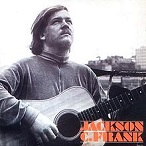
In Dec. 1965 Buffalo, N.Y.-born folk singer Jackson Carey Frank (1943-99), who was horribly burned on Mar. 31, 1954 at Cleveland Hill Elementary School in Cheektowaga, N.Y. after a furnaced exploded, giving him a $110.5K insurance settlement which he uses to travel to England releases his debut album Jackson C. Frank, produced by friend Paul Simon at CBS Studios in London; he is so shy he perrforms behind screens; incl. Blues Run the Game, which gets covered by Simon & Garfunkel and many others; too bad, he descends into total schizophrenia and goes down the toilet.
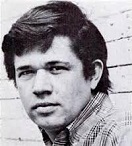
In 1965 Ga.-born Greenwich Village part-Irish part-Creek folk musician Patrick Sky (Lynch) (1943-) releases his debut album Patrick Sky, which incl. Rattlesnake Mountain, and The Battle of Ira Hayes (by Peter LaFarge). Album #2 A Harvest of Gentle Clang (1966) incl. The Farmer's Cursed Wife, and Need Somebody On Your Bond. Album #3 Reality Is Bad Enough (1968) (Verve Forecast) incl. Jimmy Clay. Album #4 Photographs (1969) incl. Who Am I? Album #5 Songs That Made America Famous (1973), full of explicit satirical lyrics incl. Luang Prabang ("Now I'm a fuckin' hero"). Album #6 Two Steps Forward, One Step Back (1975), dedicated to Mississippi John Hurt incl. his signature song Many a Mile. Album #7 Through a Window (1985) incl. Don't Think Twice (by Bob Dylan).

In July 1966 Eugene, Ore.-born folk singer James Timothy "Tim" Hardin (1941-80) releases his debut album Tim Hardin 1, which incl. Reason to Believe, and Can We Hang On to a Dream?. Album #2 Tim Hardin 2 (Apr. 1967) incl. If I Were a Carpenter. In 1969 he releases the album Suite for Susan Moore and Damion: We Are One, One, All in One (#129 in the U.S.), along with the single Simple Song of Freedom (by Bobby Darin) (#50 in the U.S.). In 1971 he releases the album Bird on a Wire (#189 in the U.S.), which incl. Bird on the Wire (by Leonard Cohen). Too bad, his heroin addiction causes him to go down the toilet, and he dies of an OD on Dec. 29, 1980 in LA.
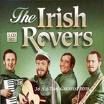
In 1966 the Irish-born Canadian folk band The Irish Rovers, incl. Will Millar (tenor), Jimmy Ferguson (baritone), George Millar, and Joe Millar releases its debut album The First of the Irish Rovers, followed by album #2 The Unicorn (1967), which features The Unicorn Song (#24 in the U.S.), written by Shel Silverstein (1930-99).
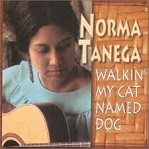
In 1966 Vallejo, Calif.-born folk singer-songwriter Norma Cecilia Tanega (1939-) releases her 1-hit wonder Walkin' My Cat Named Dog (#22 in the U.S.), going on to have a lezzie affair with Dusty Springfield and write lyrics for her songs incl. "No Stranger Am I", "Earthbound Gypsy", "Midnight Sounds", and "Go My Love".


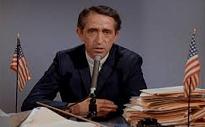
On Feb. 5, 1967 TLW-favorite The Smothers Brothers Comedy Hour, starring New York City-born "almost folk" singers Thomas Bolyn "Tom" Smothers III (1937-) ("Mom always liked you best") and Richard Remick "Dick" Smothers (1938-) debuts on CBS-TV for 72 episodes (until June 8, 1969), combining great comedy and music with boundary-pushing political criticism of the LBJ regime and the Vietnam War, going on to beat "Bonanza" for the top audience ratings and host top rock groups incl. the Beatles until LBJ pulls strings with his personal friend and CBS head William S. Paley and gets the show summarily cancelled, using a comic sermon by Canadian Jewish comedian David Steinberg (1942-) as an excuse, when he said, "The Old Testament scholars say that Jonah was swallowed by a whale. The Gentiles, the New Testament scholars say, 'Hold it, Jews, no'. They literally grabbed the Jews by the Old Testament"; South Bend, Wash.-born comedian Patrick Layton "Pat" Paulsen (1927-97) runs for U.S. pres. in 1968, repeating every four years until 1996 - why does every one of TLW's favorite shows always get cancelled?

On Dec. 27, 1967 low-voiced Jewish Canadian singer-songwriter (Leonard Nimoy lookalike?) Leonard Norman Cohen (1934-) releases his debut album Songs of Leonard Cohen (#83 in the U.S., #13 in the U.K.), which features the tracks Suzanne (about a 1-nighter with Suzanne Verdal, who was married to Montreal sculptor Armand Vaillancourt) ("And she shows you where to look/ Among the garbage and the flowers/ There are heroes in the seaweed/ There are children in the morning"), So Long, Marianne, Sisters of Mercy, and Hey, That's No Way to Say Goodbye. Album #2 Songs from a Room (Apr., 1969) (#63 in the U.S., #2 in the U.K.) features Bird on a Wire, and The Partisan. Album #3 Songs of Love and Hate (Mar. 1971) (#145 in the U.S., #4 in the U.K.) features Famous Blue Raincoat, Avalanche, First We Take Manhattan, and Joan of Arc. In 1976 he makes his first appearance at the Monteux Jazz Festival, with Laura Branagan in his backup band. Album #5 Death of a Ladies' Man (Nov., 1977), produced by Phil Spector shocked fans by drowning Cohen's voice in his Wall of Sound; it features Death of a Ladies' Man, Memories, and Iodine. Album #6 Recent Songs (Sept. 27, 1979) blends acoustic folk music with jazz and Oriental influences; it features The Guests, Humbled in Love, and The Gypsy's Wife. Album #7 Various Positions (Dec. 1984), a collaboration with Jennifer Warnes (whose tribute album revived his career) features Dance Me to the End of Love, Hallelujah, and Coming Back to You. Album #8 I'm Your Man (Feb. 1988) features I'm Your Man. Some of his songs are covered by Judy Collins and other admirers.
In 1967 Eighth Step Coffee House in Albany, N.Y. is founded by a group of local churches and housed in the basement of the First Presbyterian Church, hosting folk music acts incl. Ronnie Gilbert, Richie Havens, Buffy Sainte-Marie, and Pete Seeger.
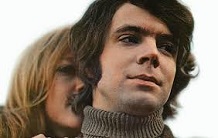
In Dec. 1968 after help usher in the era of the singer-songwriter, Portsmouth, N.H.-born Harvard-educated folk musician Tom Rush (1941-) releases album #6 The Circle Game, which incl. The Circle Game (by Joni Mitchell), Rockport Sunday, and No Regrets; the first music video, by Elektra? On Mar. 1, 2007 his cover of The Remember Song (by Steven Walters) is uploaded to YouTube, becoming a hit (6M+ views), causing him to utter the soundbyte: "I've been waiting 45 years to be an overnight sensation."
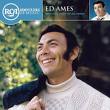
In 1968 Malden, Mass.-born pop singer Ed Ames (Edmund Dantes Urick) (1927-) dips into folk music with the album Who Will Answer? (And Other Songs of Our Time) (#13 in the U.S.) (1M copies), which incl. the big hit Who Will Answer? (based on "Aleluya No. 1" by Luis Eduardo Aute), and Blowin' in the Wind (by Bob Dylan).

On July 3, 1969 Rangoon, Burma-born Cambridge U. student Nicholas Rodney "Nick" Drake (1948-74) releases his debut album Five Leaves Left, which features the track River Man. On Mar. 6, 1971 he releases album #2 Bryter Layter, which features Bryter Layter, Fly, Poor Boy, and Northern Sky. On Feb. 25, 1973 he releases album #3 (last) Pink Moon, which features Pink Moon. Too bad, after depression keeps him from performing live or granting interviews, and no album sells more than 5K copies, he dies of an OD on Nov. 25, 1974 in Tanworth-in-Arden, Warwickshire without achieving fame, but it slowly comes later after The Dream Academy releases the eulogy Life in a Northern Town in 1985, the documentary "A Stranger Among Us" is released in 1998, and his song "Pink Moon" is used in a VW Cabriolet commercial in Nov. 1999; by 2014 he posth. sells 2.4M albums in the U.K. and U.S.

On Dec. 17, 1969 speaking of the end of the decade, after "I can't believe he's not gay" folk singer Tiny Tim (Herbert Khaury) (1932-96) have a 1-hit wonder in 1968 with a ukelele falsetto version of the #1 1929 Nick Lucas U.S. hit Tiptoe Through the Tulips, netting him several major network TV appearances, he marries Miss Vicki (Victoria May Budinger) (1952-) on The Johnny Carson Tonight Show in front of 40M viewers, and sung his big hit in his patented camp falsetto while playing his ukelele, with Lucas present; too bad, they filed for divorce in 1972 (granted 1977); watch video.
In 1969 Calliope: Pittsburgh Folk Music Society is founded in Pittsburgh, Penn. to sponsor performances of dying folk music acts, incl. Odetta, Jean Ritchie, Mike Seeger, Tom Rush, and Richard Thompson.
Too bad, in the 1970s the rise of rock music kills the market for folk music, although some survives as acoustic music.
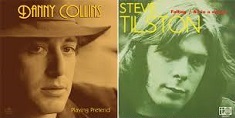
In 1971 speaking of rock music killing folk music, in 1971 English folk musician Steve Tilston (1950-) gives an interview to ZigZag mag., pining how selling out to rock and its wealth and fame might hurt his songwriting, causing John Lennon to write him a letter with the soundbyte: "Being rich doesn't change your experience in the way you think"; filmed in 2015 as "Danny Collins".

On July 6, 1974 the radio show A Prairie Home Companion, debuts (until Feb. 1987, then 1989-1993 and 1993-), about imaginary Lake Wobegon (woebegone = sad?) for Minn. Public Radio, hosted by U. of Minn. grad. Gary Edward "Garrison" Keillor (1942-) it graduates to Nat. Public Radio in Feb. 1979, broadcast from the Fitzgerald Theater (AKA the World) in St. Paul, Minn., featuring the Va. husband-wife folk music duo Robin and Linda Williams; Robert Altman's last film A Prairie Home Companion film (Feb. 12, 2006) is filmed there in 2005, and then Keillor announces he will change the venue, but changes his mind when he listens "to people who tug at my sleeve".

In 1985 Decatur, Ill.-born Alison Maria Krauss (1971-) releases her debut album Different Strokes of bluegrass fiddle tunes. In 1999 she releases Buy Me A Rose (w/Kenny Rogers and Billy Dean) (#1 country) (#40 in the U.S.). On Dec. 5, 2000 the O Brother, Where Art Thou? Soundtrack album is released (#1 country) (#1 in the U.S.) (7.8M copies), produced by T-Bone Burnett, featuring Harry McClintock, Norman Blake, Emmylou Harris, John Hartford, the Stanley Brothers, the Fairfield Four, Alison Krauss et al., rekindling interest in bluegrass; Dr. Ralph Stanley performs O Death.

On Oct. 17, 1989 Vermillion, S.D.-born folk-rock singer Shawn Colvin (1956-) releases her debut album Steady On (#111 in the U.S.), which incl. Steady On (#30 in the U.S.). Album #2 Fat City (Oct. 27, 1992) (#142 in the U.S.), incl. Polaroids, Round of Blues, and I Don't Know Why. Album #3 Cover Girl (Aug. 23, 1994) incl. This Must Be the Place (Naive Melody), and You're Gonna Make Me Lonesome When You Go. Album #4 A Few Small Repairs (Oct. 1, 1996) (#39 in the U.S.), about her divorce incl. Sunny Came Home (#7 in the U.S.) (wins song of the year and record of the year at the Grammy's, with Ol' Dirty Bastard storming the stage during her acceptance speech and having to be escorted off stage, after which she says "I'm confused now"), Nothin' on Me (#24 in the U.S.) (theme song of "Suddenly Susan"), and Get Out of This House.
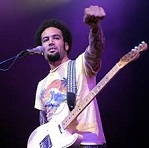
On Feb. 8, 1994 after signing with Virgin Records, Pomona, Calif.-born Benjamin Chase "Ben" Harper (1969-) releases his debut album Welcome to the Cruel World, making him a folk-soul star. On Mar. 21, 2006 he releases the double album Both Sides of the Gun (#7 in the U.S.) (White disc and Black disc), which incl. soul, hard rock, funk, and gospel; it features Better Way.

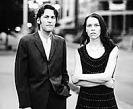
On Apr. 9, 1996 New York City-born folk-Appalachian bluegrass singer-songwriter Gillian Howard Welch (1967-) releases her debut album Revival (Almo Sounds), the first with musical partner David Todd Rawlings, which features Acony Bell, and Annabelle. Album #2 Hell Among the Yearlings (July 28, 1998) (#181 in the U.S.) features Caleb Meyer, Good Til Now, and The Devil Had a Hold of Me. Album #3 Time (The Revelator) (July 31, 2001) (#157 in the U.S.) (Acony Records) features Revelator, and I Want to Sing that Rock and Roll. Album #4 Soul Journey (June 3, 2007) (#107 in the U.S.) features Make Me a Pallet on Your Floor, and No One Knows My Name. Album #5 The Harrow & The Harvest (June 28, 2011) (#20 in the U.S.) (#25 in the U.K.) features Scarlet Town, Dark Turn of Mind, Down Along the Dixie Line, and Six White Horses. She goes on to release five studio albums.
In 2004 Kip Ornell pub. The NPR Curious Listener's Guide to American Folk Music, with a foreword by Linda Ronstadt.

In 2008 Red diaper baby (child of CPUSA members) Suzsan Elizabeth "Ruze" Rotolo (1943-2011), Bob Dylan's girlfriend in 1961-4, who clutches his arm on the cover of his 2nd album "Freewheelin' Bob Dylan" pub. her autobio. A Freewheelin' Time: A Memoir of Greenwich Village in the Sixties, claiming that he may have talent but is not an honorable man.
In 2009 the first annual Brooklyn Folk Festival in N.Y. is held.
On Mar. 1, 2016 PBS-TV debuts This Is Your Land (My Music), a musical tour of Am. folk music, hosted by the Smothers Brothers and Judy Collins.